|
|
|
|
A headline is meant to capture the essence of a story and invite a potential reader to dive in. I’m terrible at headline writing. So I turn to our best headline writer on staff, Joel Abrams, who this week wrote one that perfectly described a story by scholar Gábor Scheiring: “I watched Hungary’s democracy dissolve into authoritarianism as a member of parliament − and I see troubling parallels in Trumpism and its appeal to workers.”
Scheiring, a Hungarian political sociologist who’s a fellow at Harvard University this year, had pitched us a story about populism that he wanted to write. But when I saw that he had been a member of Hungary’s Parliament when strongman Viktor Orbán took over as that country’s prime minister in 2010, I asked him to write about what it was like during that period.
Orbán is much admired by presidential candidate Donald Trump, and I felt that such a story could provide readers with a window on what happens when a democracy is led by a leader with authoritarian leanings. Scheiring’s analysis of how Orbán rose to power and then wielded it offers powerful lessons for the U.S.: “When the economy fails to deliver, disillusionment with capitalism morphs into an apathy toward liberal democracy. If the liberal center appears uncaring, authoritarian populists can mobilize voters against both the cultural and economic threats posed by globalization.”
The result in Hungary? “If the parliament is the political home of democracy, Hungary’s was vacant by 2012,” writes Scheiring. That happened in two years.
|

|
Naomi Schalit
Senior Editor, Politics + Democracy
|
|
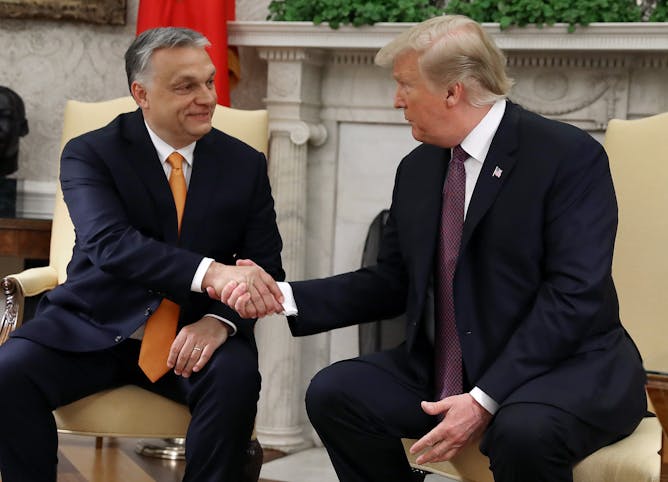
President Donald Trump shakes hands with Hungarian Prime Minister Viktor Orbán during a meeting in the Oval Office on May 13, 2019, in Washington, D.C.
Mark Wilson/Getty Images
Gábor Scheiring, Harvard University
One of Donald Trump’s favorite politicians is the Hungarian authoritarian leader Viktor Orbán. Would a country led again by Trump embrace similar antidemocratic politics?
|
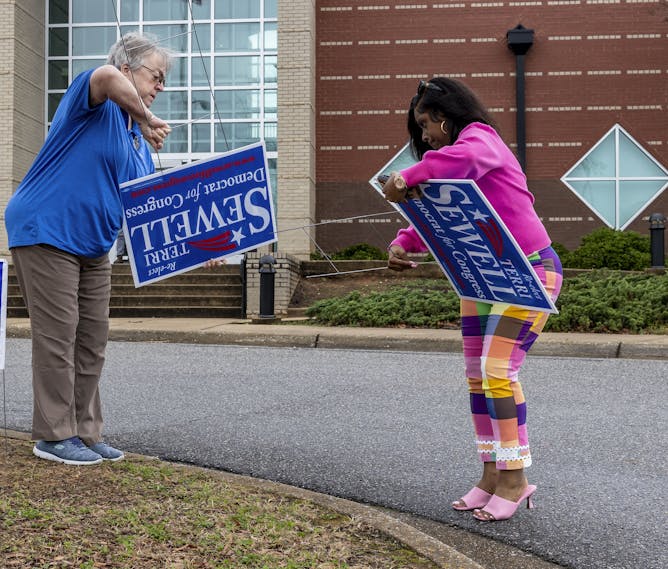
Campaign volunteers set up signs encouraging people to vote.
AP Photo/Vasha Hunt
Jared McDonald, University of Mary Washington
It’s not just polarization that’s driving voters’ malaise − it’s something else, which carries a stark warning for the health of American democracy.
|
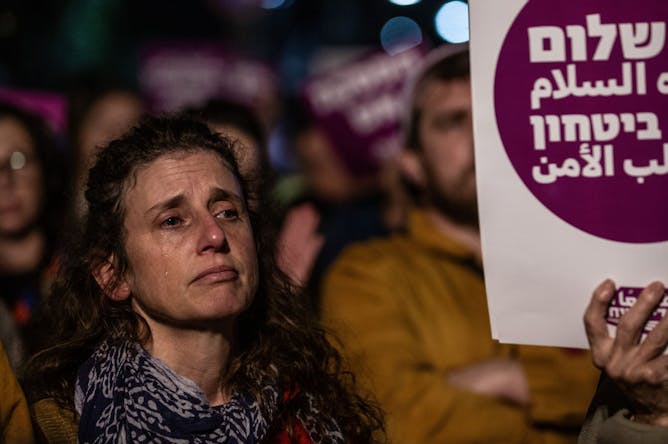
A demonstration on Dec. 28, 2023, in Tel Aviv, organized by the peace group Standing Together, calls for a cease-fire.
Anadolu via Getty Images
Atalia Omer, University of Notre Dame
Secular Jewish groups have historically made up the majority of solidarity and peace groups. But Palestinian citizens and observant Jews are also key.
|
|
|
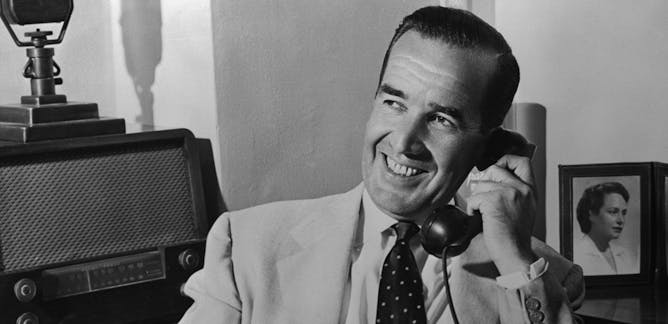
W. Joseph Campbell, American University School of Communication
Starting in 1950, as the fear of communist subversion spread throughout America, McCarthy launched hearings that were based on scant evidence and overblown charges.
| |

Lynn Greenky, Syracuse University
A college junior who has gained a following by sharing high-profile people’s private flight information says that he is sharing public information. Others, like Taylor Swift, say that he is stalking.
|
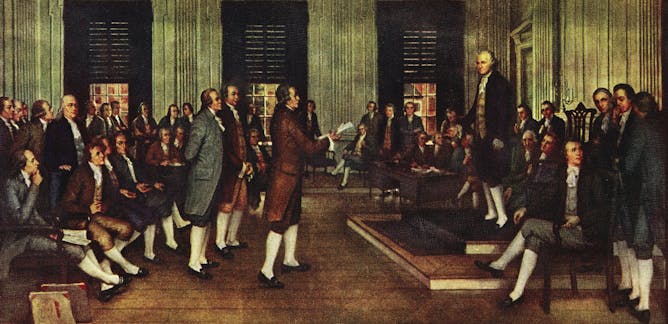
Robert A. Strong, University of Virginia
Right from the very beginning of the nation, there have been rules that limit the ability of the people to choose their leaders.
| |

Mark Robert Rank, Arts & Sciences at Washington University in St. Louis
During the Cuban missile crisis, World War III was likely averted by what one US official called ‘just plain dumb luck.’
|
|
|
|
|
-
Ahmet T. Kuru, San Diego State University
Religion and nationalism were once ideologies at odds. Now, they are increasingly bedfellows, with populism often the glue.
-
Dan Murphy, Harvard Kennedy School
Most Americans see China as the biggest threat to the US. But away from headline economic figures, China has a slew of challenges.
-
Huchen Liu, University of Nebraska Omaha
Nikki Haley claims Donald Trump is running as a quasi-incumbent and should be doing much better against her than he is. That’s wishful thinking, says a political scientist.
-
Paul Ringel, High Point University
Unlike some GOP politicians, a college professor who teaches Black history to mostly white students was excited that the Black national anthem was being played at the Super Bowl.
|
|
|
|
|
Like this newsletter? You might be interested in our other weekly emails:
|
| |
| |
| |
| |
|
|
|
|
|
|
|